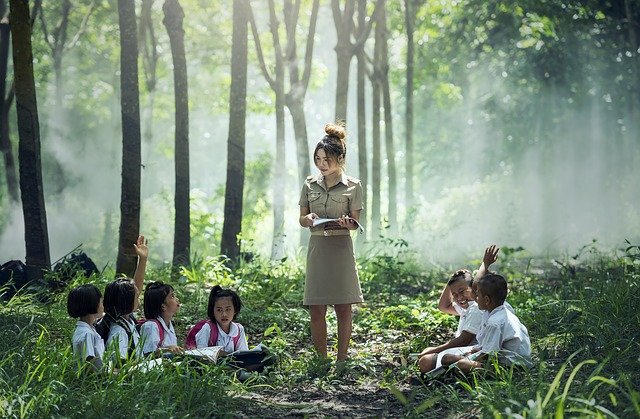Increasingly mindfulness is being introduced into schools for the benefit of teachers and students. I previously discussed the work of Goldie Hawn and the MindUP program introduced extensively in schools across America. Goldie explained the motivation for her work with schools and the reasons why children need mindfulness in an interview with Tami Simon. The Australia and New Zealand Mental Health Association highlights the need to raise mental health awareness in schools because of the increasing level of mental illness amongst school age children and the adverse effects of social media together with study pressures and performance expectations (of others and themselves). Research strongly supports the benefit of mindfulness for mental health.
Benefits of mindfulness in schools
Research into mindfulness practice in schools demonstrates that both students and teachers benefit. Students develop greater capacity for attention and focus, increased self-awareness and better emotional self-regulation. These outcomes in turn build their self-esteem and reduce stress and the incidence of anxiety and depression. Teachers too experience similar outcomes and develop resilience to deal with setbacks and disappointments. Patricia Jennings, author of Mindfulness for Teachers: Simple Skills for Peace and Productivity in the Classroom, identifies seven ways mindfulness can help teachers along with practices to support these outcomes. These benefits include the capacity to slow down, build better relationships with students and handle difficult students more effectively.
Guidelines for the implementation of mindfulness in schools
The Smiling Mind organisation has developed guidelines based on research into successful implementation of their mindfulness programs in schools. These evidence-based guidelines provide recommendations for the training of teachers and students in mindfulness as well as suggestions re the ideal duration and timing of daily mindfulness practices. They strongly encourage the involvement of teachers in mindfulness practices so that they can act as models and a resource for students. The guidelines recommend a whole-of-school approach to the development of mindfulness in schools, including the active involvement of school leaders and parents (where possible). This wider level of involvement serves as positive reinforcement for the practice of mindfulness by students.
Resources for mindfulness in schools
There is a growing mindfulness resource base for teachers, students and parents. Here is a small sample of what is available:
- Free mindfulness app: Smiling Mind offers a free mindfulness app that incorporates meditations and other mindfulness practices for use by teachers, students and parents.
- Mindfulness videos and books: Grow Mindfully provides videos and a reading list for teachers and parents.
- Mindfulness training programs for teachers and students: Grow Mindfully and Smiling Mind offer these program.
- Weekly meditation podcast: The weekly meditation podcast provided by the Mindfulness Awareness Research Center (MARC) covers a wide range of possible meditation topics that can be incorporated in school-based meditations.
Reflection
Developing mindfulness in schools can help both students and teachers deal with the stresses of modern life and help them to enrich their relationships at school, work and home. Modelling by teachers (and ideally by parents) will help to reinforce positive changes in self-awareness and self-regulation achieved by students through mindfulness practices. As students and teachers grow in mindfulness through regular practice, they can experience life more fully and with a greater level of contentment.
_____________________________________
Image by Sasin Tipchai from Pixabay
By Ron Passfield – Copyright (Creative Commons license, Attribution–Non Commercial–No Derivatives)
Disclosure: If you purchase a product through this site, I may earn a commission which will help to pay for the site, the associated Meetup group and the resources to support the blog.

